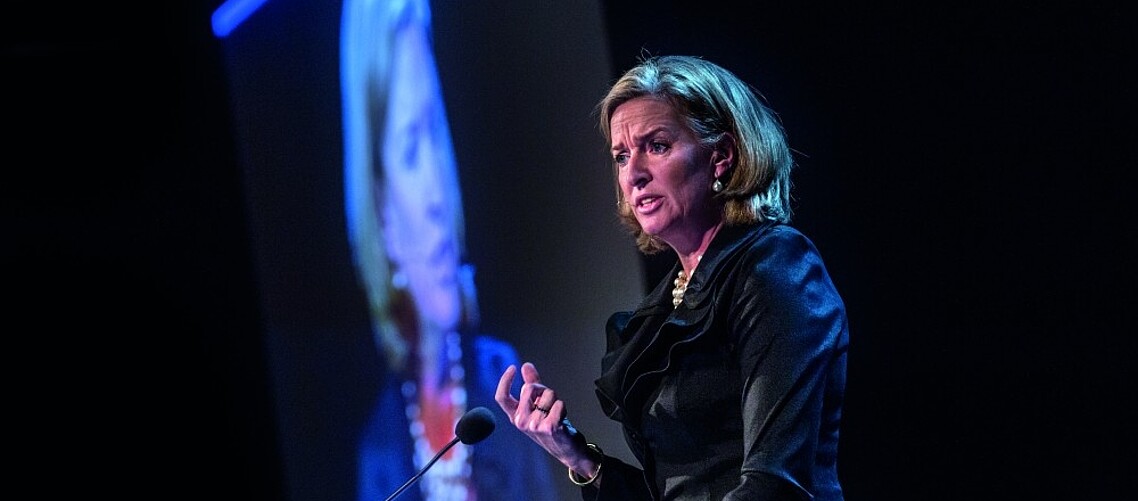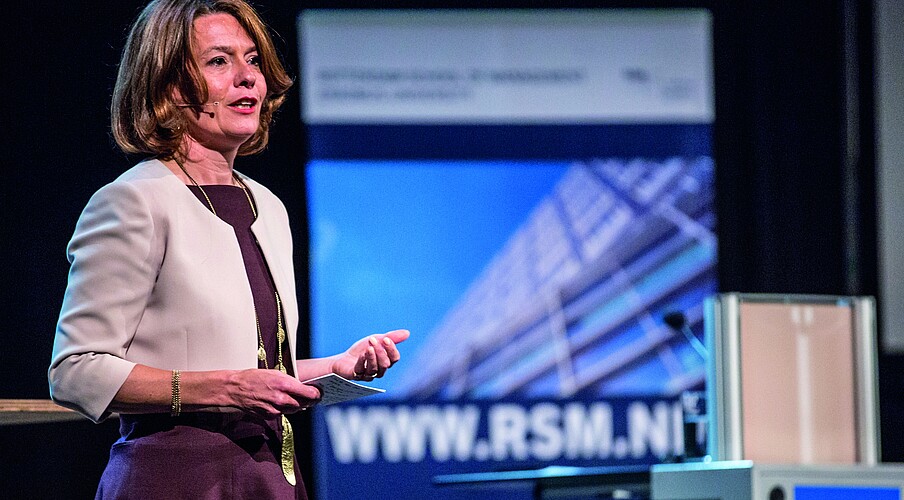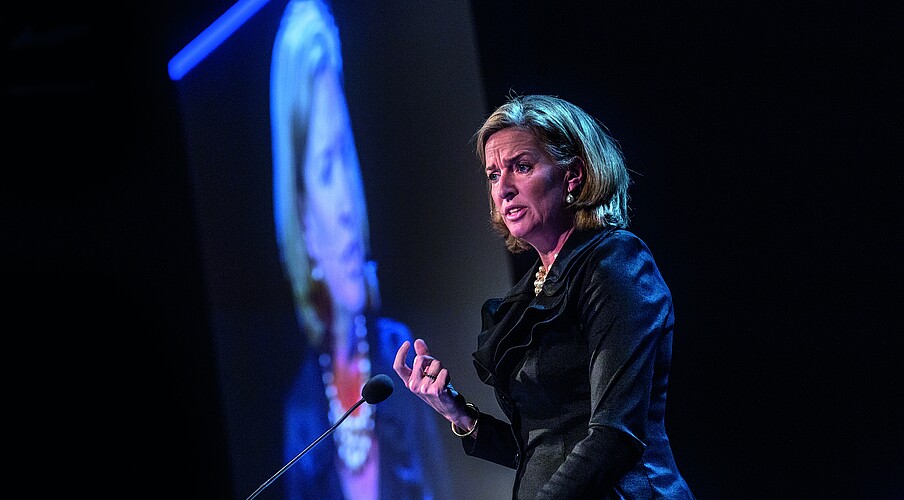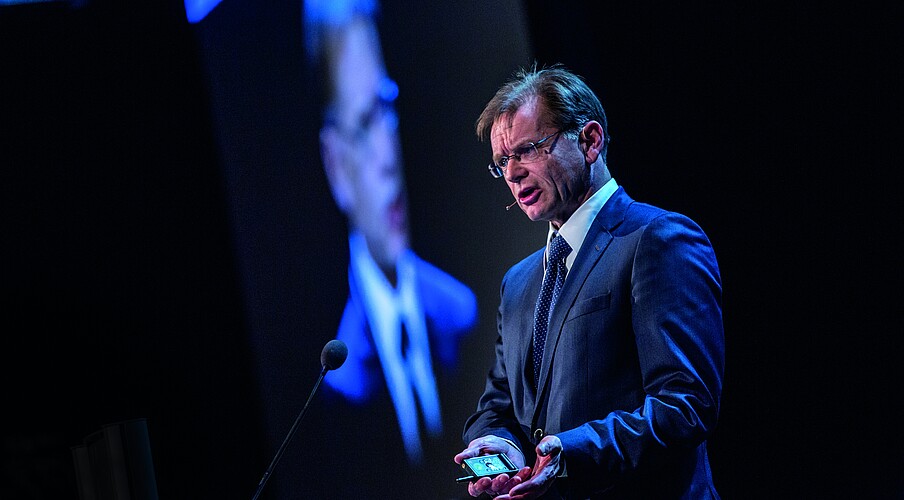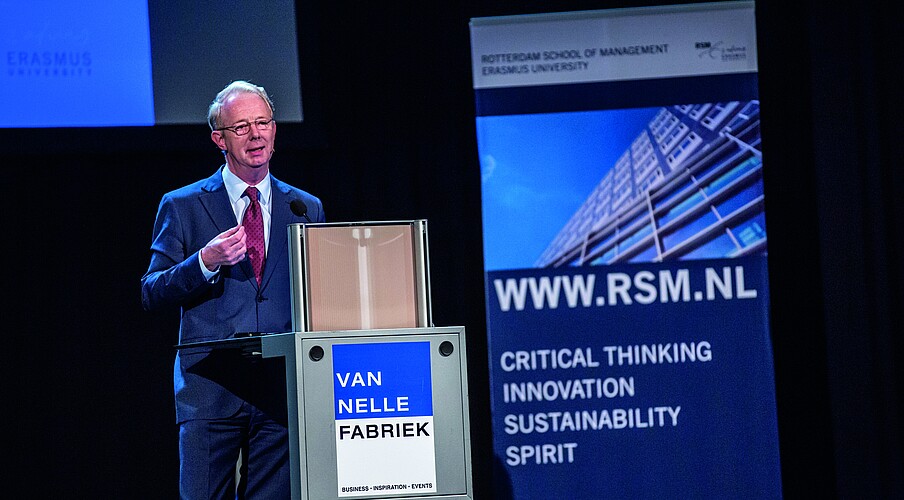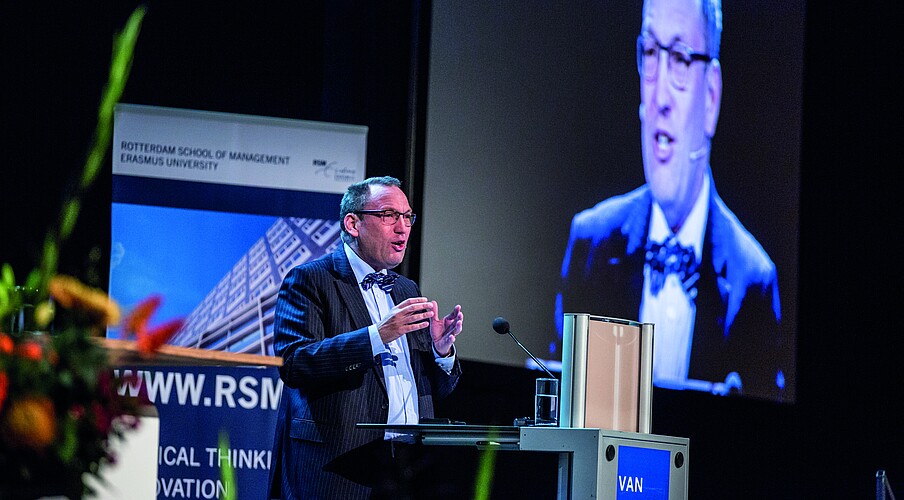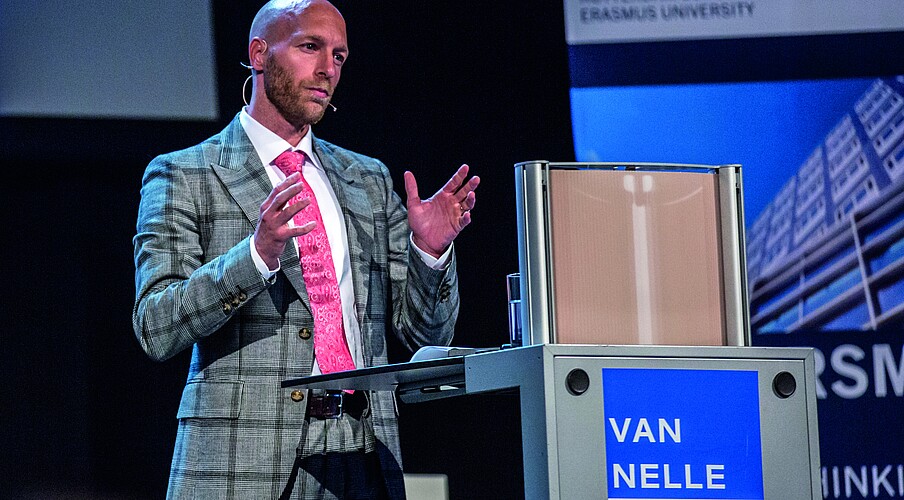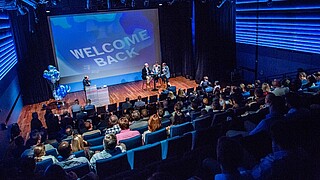All three leaders shared a common thread in their stories: that effective communication with stakeholders – customers, employees, policy makers and society at large – is an essential part of leadership, as is being human, viewing the organisation as an outsider, and a willingness to accept criticism and adapting to new situations.
Outlining their personal perspectives on leadership were Marijn Dekkers of Bayer AG, Dorothee van Vredenburch of NN Group, and Merel van Vroonhoven of AFM. The RSM faculty members who joined them on stage at the summit backed the leaders’ experiences and explained the hard science of leadership and communication to the audience of around 500 business managers, students and the wider RSM community.
Leadership qualities are constantly challenged by external factors, but effective leaders must create positive environments, said Marijn Dekkers, chairman of the board of management of German pharmaceutical multinational Bayer AG. Dekkers was unfamiliar with typical German business practices when he joined Bayer after building his career in the USA. ‘When you enter a different environment as a CEO, do you turn things back to what you know? Or do you figure out how it’s done here and how you can adapt to it?’ he said.
Dekkers emphasised that feedback from colleagues and accepting criticism is important in order to be able to see other perspectives. Rob van Tulder, professor of international business-society management, agreed that being sensitive when entering an existing culture was a good approach to management. ‘It’s about thought leadership,’ he said.
Connecting emotionally
Dorothee van Vredenburch, member of the management board at international insurance and investment management company NN Group, identifies an emotional level of communication that connects with customers, employees and investors, and also an intuitive level where the “authenticity button” is housed. Her personal mission is to connect the purpose, the people and their performance. While important, assets that “don’t breathe” – such as spreadsheets and contracts – don’t inspire people, she said.
A leader’s survival kit, she explained, should include trust; instilling self-confidence that emboldens people to try new things so they co-operate instead of ‘surreptitiously attempting to bring projects down.’ Fear drives people to spread negativity. ‘Maybe we think if we give other people self-confidence, then it will desert us, but the opposite is true. It helps you to grow,’ she said. ‘People will forget what you say, but they will always remember how you made them feel.’
Merel van Vroonhoven, chair of the executive board at the Netherlands Authority for the Financial Markets (AFM) says her mission is to make connections and to provide autonomy; a balance that many leaders find difficult, but one which seems to be more easily found in voluntary organisations. She has learned how to see the world in new ways from her own family – particularly from her son who has autism – and from volunteer work.
Lucas Meijs, RSM’s professor of volunteering, civil society and businesses, and professor of strategic philanthropy, confirmed that effective business leaders aiming to create sustainable change need skills from civil society. ‘Volunteering experience can enhance your leadership skills,’ he said.
Van Vroonhoven addressed the students in the audience, saying a “zigzag career” would enrich their professional lives. ‘You’re at the beginning of your journey. My advice is to become “human”. Instead of hopping immediately into a new job and working stressfully in a corporate company, draw your inspiration from voluntary work,’ she said.
Joep Cornelissen, professor of corporate communication and management at RSM, reinforced the speakers’ recommendations to be authentic and to use storytelling to be convincing for customers, investors and employees. These skills, he says, are important at every stage of business – from an entrepreneur’s pitch to dealing with investors and right up to the boardroom.
The question-and-answer sessions, a unique feature of the RSM Leadership Summit, enabled the audience to dig deeper into the speakers’ personal stories. Appreciative feedback after the event highlighted the value of business leaders sharing such experiences, and also the opportunity to hear from female business leaders.
